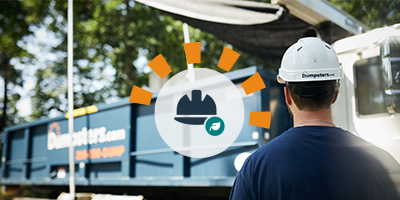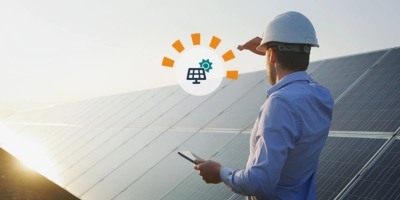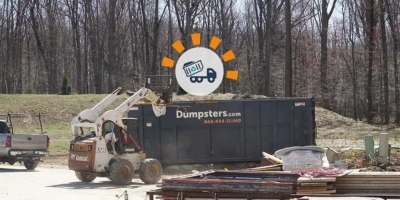How to Plan a Waste Audit
Follow our 5-step guide to learn how to monitor your trash and take your business green.
Make cleanup a breeze with a roll off dumpster:
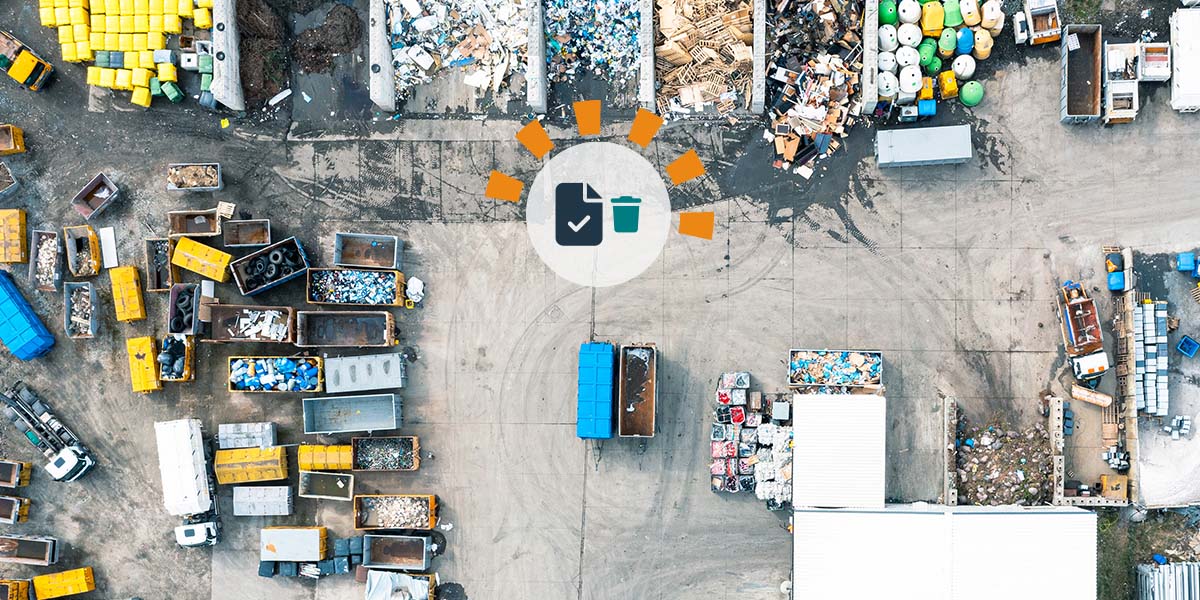
A Simple Waste Audit Checklist for Any Business
Taking out the trash isn’t just a chore. It could be costing your business money — not to mention your customers’ loyalty. Today’s consumers want to support businesses with eco-friendly practices. Plus, the more you throw out, the more you’re spending on trash collection and replacement materials.
Before you can reduce waste at your organization, you need data to create the smartest plan of attack. If you don’t have the information on-hand, it’s time to do a waste audit. We turned advice from sustainability consultants Great Forest and Badger Balm, a personal care company that conducts quarterly audits, into a simple checklist to help your business get started.
What Is a Waste Audit?
A waste audit is a method for analyzing an organization’s waste stream. The goal is to discover what types and quantities of waste, such as paper, plastic or food, you produce within a given timeframe — usually a week. Auditing also measures how much waste is recycled vs. thrown out. Businesses usually conduct waste audits in order to set recycling, reduction and diversion goals as they prepare to go green or seek LEED Certification.

"Our study shows that 77% of what is thrown out is not trash. Most companies are probably paying too much for trash removal and losing many valuable recyclables daily, but they do not realize it because they have not had a proper waste audit to analyze their waste streams."
Should You DIY or Hire a Service?
Businesses that produce a relatively small amount of trash, like offices and boutique stores, or businesses that want some baseline data often conduct audits on their own. “DIY audits are good for small educational events to highlight the types of waste generated,” said Ross Guberman of waste auditing service Great Forest.
However, Guberman added, “Waste audits conducted for a specific purpose should always be done by experts such as Great Forest. We know what to look out for, and more importantly, how to analyze the data properly.” Guberman recommends hiring a service for projects like:
- Seeking LEED or TRUE certification.
- Creating a waste-related request for proposal (RFP).
- Determining storage and equipment needs during construction.
If you’ve decided to do it yourself, keep reading for our step-by-step waste audit checklist. Even if you’re hiring a service, take a look to understand how your audit will work.

How to Conduct a Waste Audit
The process of conducting a waste audit can be broken down into five simple steps. Refer to our guide below to learn what you need to take your commercial trash removal to the next level.
1. Assemble a Team & Set a Date
Find a volunteer from each department to form your waste auditing team. Aim for at least five people. Deirdre Fitzgerald of Badger Balm, a Certified B Corp that holds audits every quarter, recommends making this group an ongoing “Sustainability Committee” that can oversee any changes you want to make.
Next, pick a week for the audit. You want a clear picture of your normal trash output, so choose a week without any special events and when most of your staff will be in the office. If you have outside custodial staff, make sure they know to hold off on emptying the trash that week.


"We wanted to codify and measure our commitment to positive environmental and social practices in a transparent way. Quarterly waste audits are one of the ways that Badger tracks its progress of reducing and diverting waste to landfills through composting and recycling best practices."
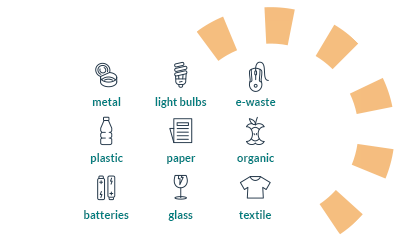
2. Determine Your Waste Categories
Before “Waste Audit Week” rolls around, make a list of the most common trash types your business produces. This list can be general for now — you can always add new categories as needed.
Common Waste Audit Categories:
- Glass
- Paper
- Signage
- Cardboard
- Food waste
- Plastic bottles
- General plastic
- Aluminum cans
- Display materials
- Materials packaging
3. Gather Your Tools
Before the main event, you’ll need to stock up on a few supplies to make sure your team can work safely.
Supplies Needed for a Waste Audit:
- An open area for sorting the trash.
- Tongs for each volunteer (optional).
- Clipboards for recording your findings.
- A bathroom scale for weighing each category.
- Labelled boxes for sorting each waste category.
- Face masks and rubber gloves for each volunteer.
- Trash bags for re-bagging your waste after the audit.
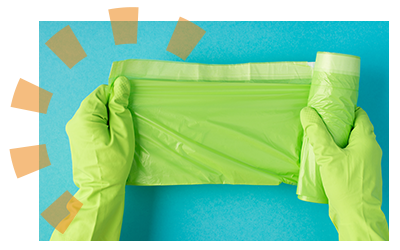
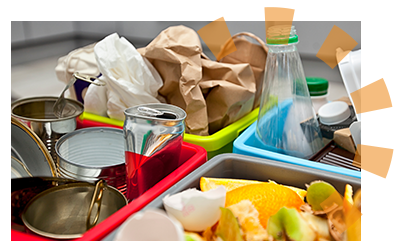
4. Sort Your Trash
It’s time for the real work to begin. Here’s how to sort your garbage:
- Gather all the trash and recycling from your building.
- Label each trash bag with the department it came from.
- Weigh all the trash to get a baseline for how much you throw out each week.
- Weigh all the recyclables to establish how much you recycle each week.
- Wearing gloves, sort all materials into the boxes for their categories. If you labeled your trash by department, make sure each has separate boxes.
- As you work, note any recyclables mixed in with the trash.
- Once everything has been sorted, weigh each category.
5. Analyze Your Results
Now that you’ve recorded all weights, you can use this data for a waste stream analysis.
Calculate and record your waste diversion rate using this process:
- Divide the weight of your recyclables by the combined weight of all your waste (trash + recyclables).
- Multiply the result by 100.
- This gives you a weekly waste diversion percentage.
Look at the weights you recorded for individual waste categories.
- Which categories are the highest?
- Did the highest categories differ between departments?
- Did you find any recyclables mixed in with the trash?
- Were there categories you didn’t realize you had?
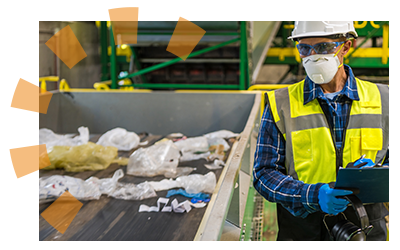

Pro-Tip
Don’t lose track of your waste audit report. As you take steps to reduce waste, these numbers will become a powerful marketing tool you can use to show customers how hard you’re working at taking your business green.
Next Steps After Waste Auditing
So, you’ve conducted your audit and completed your waste stream analysis. Now what?
1. Determine whether your dumpster size and pickup frequency still match your needs. If your trash output changed, a different size or number of pickups may be more cost-effective.
2. Add recycling service to your plan. If you don't have recycling as part of your waste removal plan, consider add it. We offer single stream and cardboard-only bins in a variety of sizes to help up your waste diversion game.
3. Set a goal for increasing your recycling rate.
4. Create recycling guidelines for meeting that goal and share them with your staff.
5. Set a goal for reducing the amount of waste in your largest categories.
6. Determine the steps to meet that goal and let your staff know. For example, you might switch to online bill pay to reduce paper or buy a different coffee maker to avoid wasteful coffee pods.
7. Identify any items you can reuse. For example, can you repair or recycle your electronics instead of purchasing new ones? Can you repurpose any of your packaging materials?
8. Decide on a timeline for meeting your recycling and reduction goals. One or two years usually makes sense. Plan to conduct another waste audit at that time to see if you met your goals.
According to Fitzgerald, Badger Balm was able to reduce its trash output by 77 percent by making changes like:
- Switching from paper to cloth napkins in their dining area.
- Using product labels with recyclable backing where possible.
- Replacing paper towels with energy-efficient electric hand dryers in bathrooms.

"At Badger, our aim is to achieve zero waste, so we set annual goals based on our progress. We also collaborate with other B Corps to learn their approach to waste reduction."
Using this method, a waste audit will show you where to focus your efforts as you work toward a greener corporate culture. You may even discover that you’re saving money as you find new ways to reduce waste.
Need a Waste Audit for Your Trash?
If you're a commercial business, we offer free waste quotes for front load dumpster trash and recycling collection. Fill out the form or give us a call at 833-499-7510 to get started.
Expert Contributors

Ross Guberman
Ross Guberman is the former CEO of Great Forest, a New York-based organization that pioneered some of the first corporate sustainability programs in the country beginning in 1989. Today, the company works in a wide range of industries including tech, real estate and finance to create data-driven solutions for companies’ waste-related needs.

Deirdre Fitzgerald
Deirdre Fitzgerald is the brand manager for W.S. Badger Company based out of Antrim, New Hampshire. Badger is a family business making certified-organic and truly natural skin care products. Their chemical-free organic sunscreens are highly rated for their safety and efficacy and have established Badger as a leader in natural cosmetics.
What Do You Think?
Have thoughts on waste diversion and sustainability? We're listening. Head over to Twitter, LinkedIn, Pinterest or Facebook and use #dumpstersblog to join the conversation.


